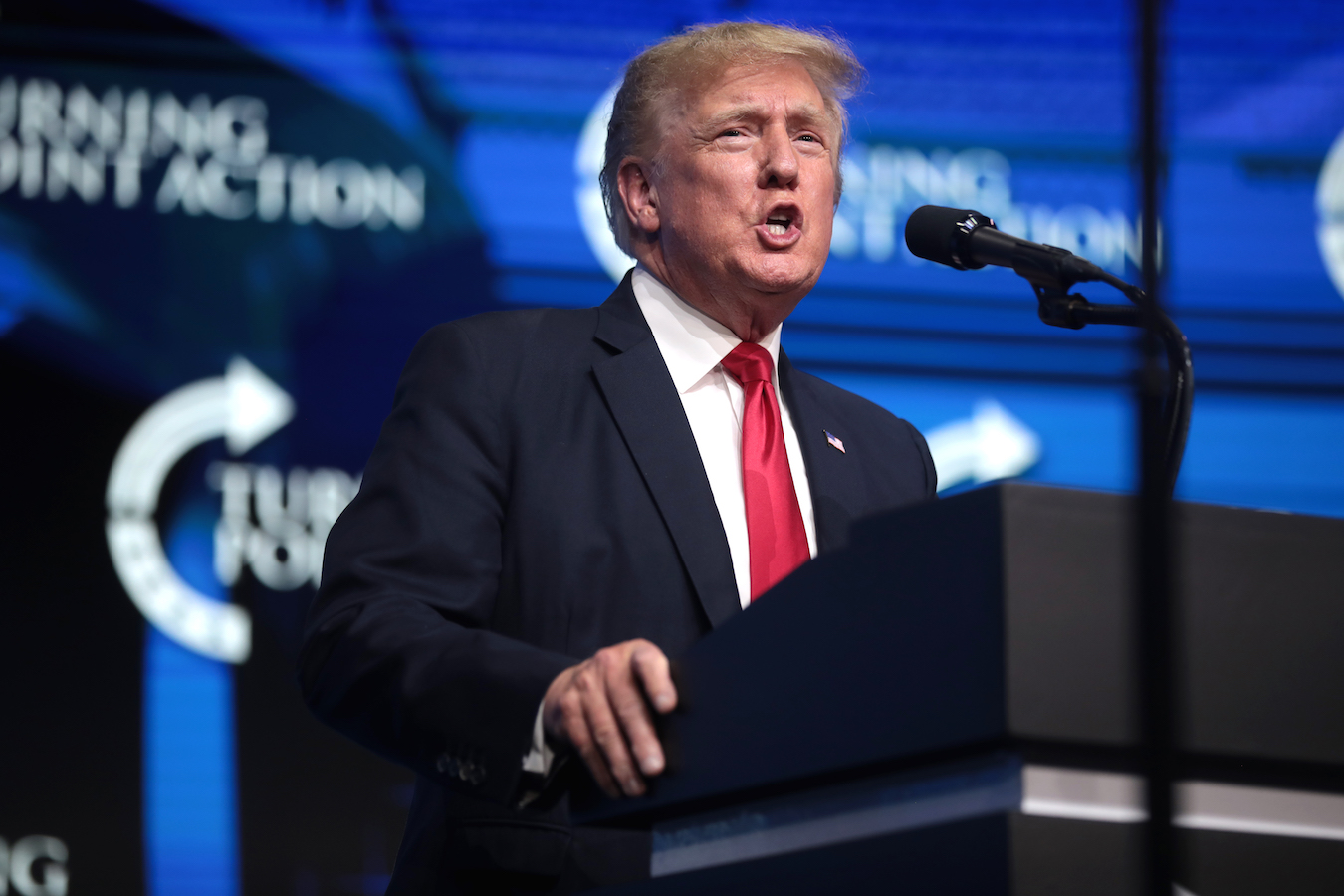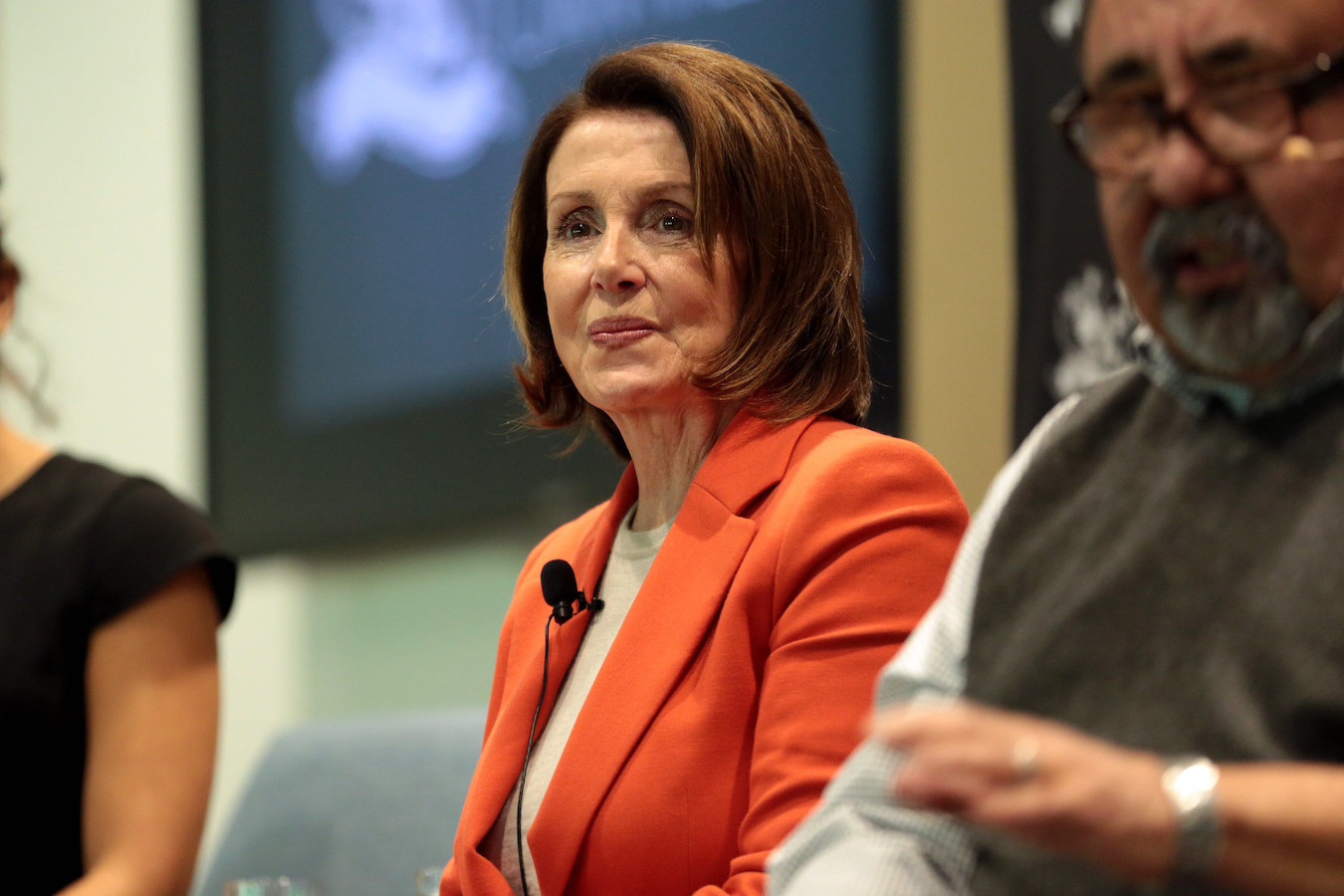by Brian Hioe
語言:
English
Photo Credit: Ken Lund/Flickr/CC BY-SA 2.0
THE US MIDTERM elections took place on Tuesday. Votes are still being counted several days later.
Projections have Republicans winning the House, but possibly the Democrats holding the Senate. At press time, 46 Senate seats have been called for Democrats, while 48 seats have been called for Republicans. Likewise, 184 seats in the House of Representatives have been called for Democrats, while 207 have been called for Republicans.
The preliminary results of the race are interpreted as showing better-than-expected performance for the Democrats. Many predictions ahead of time had Republicans sweeping the House and Senate in a “red wave.”
 Donald Trump. Photo credit: Gage Skidmore/Flickr/CC BY-SA 2.0
Donald Trump. Photo credit: Gage Skidmore/Flickr/CC BY-SA 2.0
Clearly, that did not come to pass. This can be read as a rebuke to Trump supporters and other Republicans that have leaned into the far-right for their election campaigns.
It is expected that Trump will try to run again for election in 2024, so the election outcome raises questions about his viability as a presidential candidate. The election results are also a win for incumbent president Joe Biden, who will be running for reelection.
A disastrous showing for the Democrats would have led to questions about whether the Democrats would be better off with another candidate. Either way, even if the results are not yet decided, the results are the best midterm showing for any Democratic president in recent memory.
Governor of Florida Ron DeSantis’ strong performance in his reelection has led to questions about whether he might challenge Trump for the Republican presidential nomination. Trump has warned him against the notion, while Biden has remarked that he would like to see the two fight–and perhaps split the Republican vote.
In the meantime, it is to be seen what the implications for Taiwan will be. Firstly, perhaps due to being a midterm election, there has been less attention to the election and its implications for Taiwan, with a comparative lack of commentary.
As has been the case in the past, there has been particular attention to the political outcomes of politicians seen as traditionally supportive of Taiwan, so-called longtime “friends of Taiwan”. This is with regards to Republicans hawkish on China, as House of Representatives member Steve Chabot, who was defeated.
More generally, however, it is thought that support for Taiwan is increasingly bipartisan consensus. As a result, the election outcome is understood by some experts as not having a significant influence on the course of future US actions supportive of Taiwan.
That perhaps differs from in the past, when a Democratic victory may have prompted anxieties about if Democrats would throw Taiwan under the bus in favor of China. Pan-green political administrations in Taiwan have historically been wary of the Democratic party, perceiving Republicans as more strongly supportive of Taiwan, and the Democratic party as more pro-China. Apart from that the Obama administration previously tried to sabotage Tsai Ing-wen’s 2012 presidential run with a phone call placed to the Financial Times expressing a lack of faith in her to stand up to China, the DPP sometimes saw the US as more focused on building economic relations with China under Clinton at Taiwan’s expense.
 US Speaker of the House Nancy Pelosi. Photo credit: Gage Skidmore/Flickr/CC BY-SA 2.0
US Speaker of the House Nancy Pelosi. Photo credit: Gage Skidmore/Flickr/CC BY-SA 2.0
A major factor in changes in perceptions of the Democrats may be the high-profile visit to Taiwan made by US Speaker of the House Nancy Pelosi in August. In the aftermath of the drill, China responded with unprecedented live-fire drills that took place closer to Taiwan than during the Third Taiwan Straits Crisis.
Many questioned the utility of the visit, seeing as it was primarily a symbolic show of support, and there were no tangible outcomes for Taiwan as a trade deal or arms sale. The visit was perhaps for the sake of US midterms, by trying to show that the Democrats were tough on China through a show of support for Taiwan. This adds to the growing debate about the usefulness of substantive versus symbolic actions for Taiwan, as was also contested regarding the Taiwan Policy Act.
At the same time, while Pelosi was careful to emphasize the bipartisan nature of the visit, it does appear that the visit did quite a lot in changing the perception of Democrats in Taiwan. Consequently, one has not seen as much hand-wringing about there being no “red wave” as one might otherwise have seen, and there was a notable focus on Pelosi’s own political fortunes in election coverage, along the lines of other US politicians read as “friends of Taiwan.” That pan-Green views of the Democrats in Taiwan have changed is significant.

